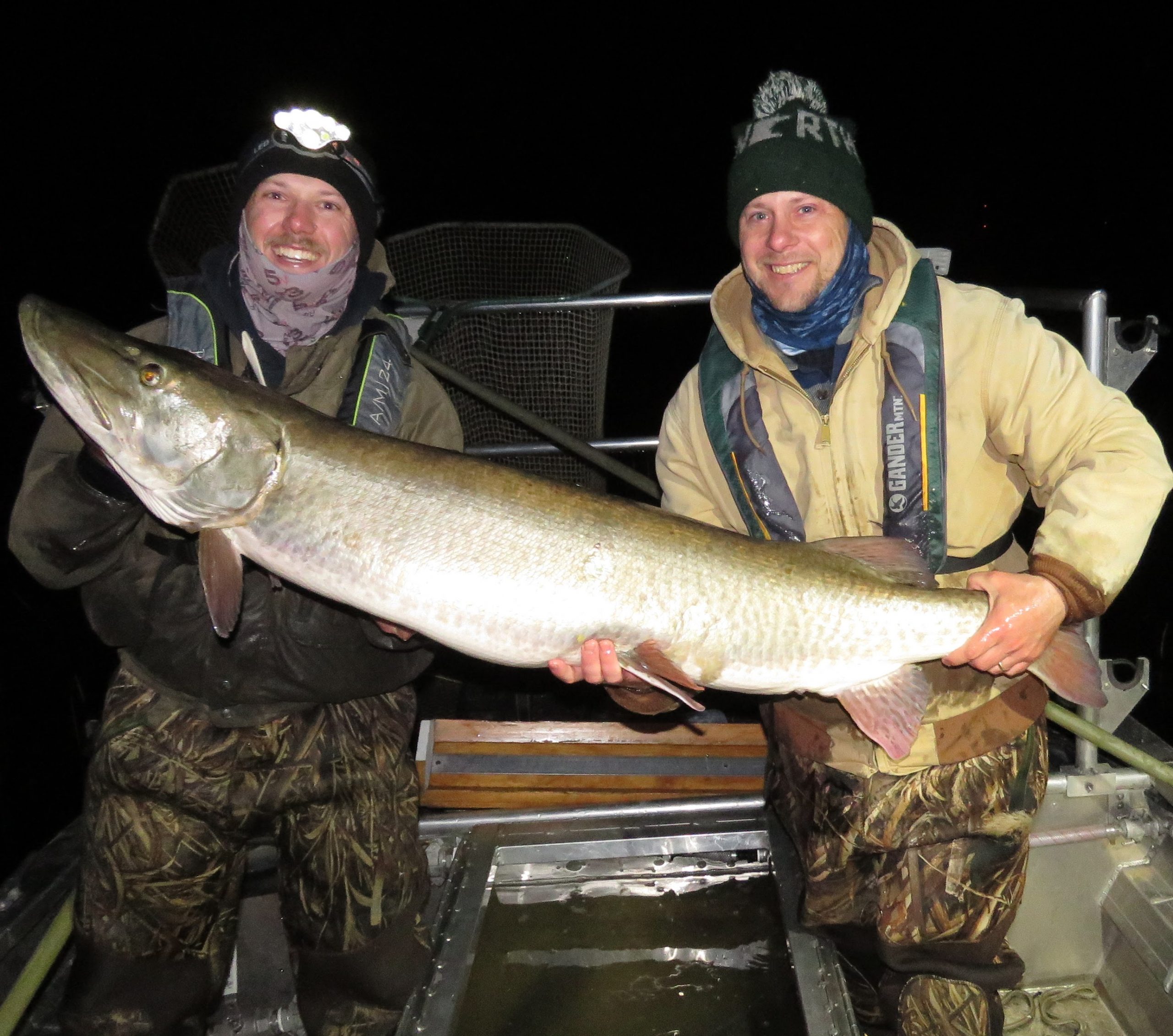Through a partnership between Bemidji State University, the University of St. Thomas and the Minnesota Department of Natural Resources, biology graduate student Kamden Glade is getting the experience of a lifetime.
Working under the direction of Dr. Andy Hafs, BSU biology professor renowned for his aquatic biology research, Glade is exploring the feeding habits of predator fish such as muskellunge, walleye, northern pike and largemouth bass. By examining the stomach content of fish found in lakes throughout the state, researchers hope to learn more about aquatic diets — what particular species eat, and whether different species share common diets.
Glade said the researchers use electrofishing — temporarily stunning the fish and transferring them into a live well on their boats — to gather fish, and then use lake water to pump their stomachs.
“The water pressure in the stomach forces out whatever food they may have eaten recently, which we collect. We then take it back to the lab, where we identify all of their food, count each individual item and measure them,” he said.
The researchers are paying special attention to the presence or absence of cisco, commonly known as tullibee or lake herring, to analyze their dietary impact. Previous studies have shown cisco to be an important food source for predator fish.
“We’re also looking at how diets change based on the season within each lake,” Glade said.
Glade has been interested in working on this type of research since completing his undergraduate degree in 2017 and sought to work specifically with Hafs.
“I had visited northern Minnesota many times growing up and knew I loved the area,” he said. “I spoke with Dr. Hafs about a potential position before I graduated in 2017, but he didn’t have any openings at the time. After working at a trout hatchery in Nevada for a year, I reached out to him again just as this project was getting finalized. Between the project details and the timing it couldn’t have worked out any better.”
After graduate school, Glade hopes to continue his work and research in the fisheries management field.
Contact
- Dr. Andrew Hafs, professor of biology; (218) 755-2789, andrew.hafs@bemidjistate.edu
Links
2021-B-016

